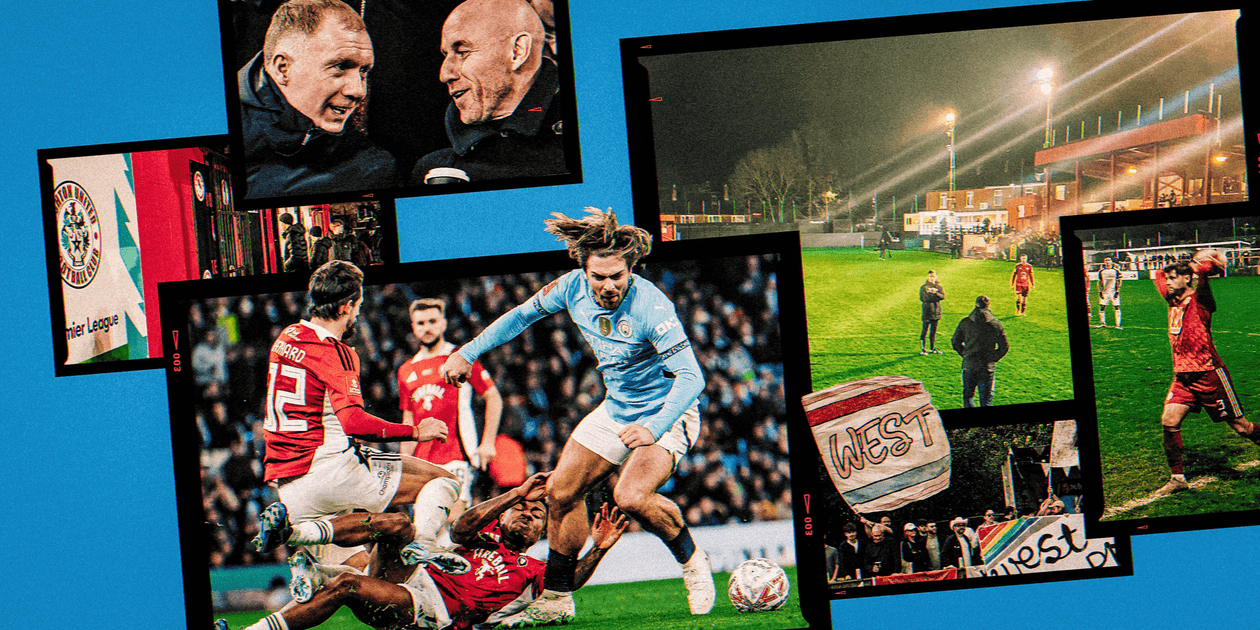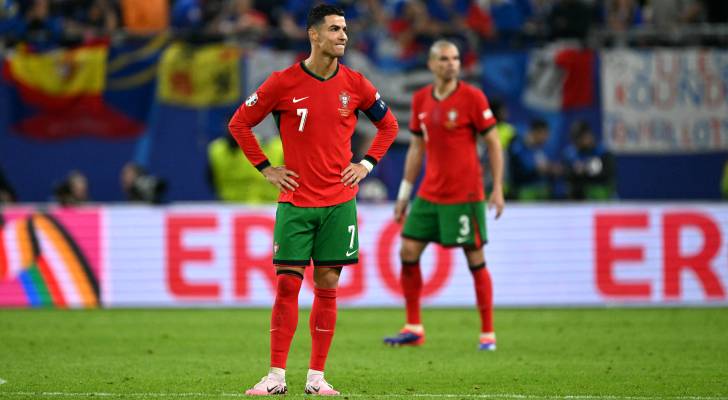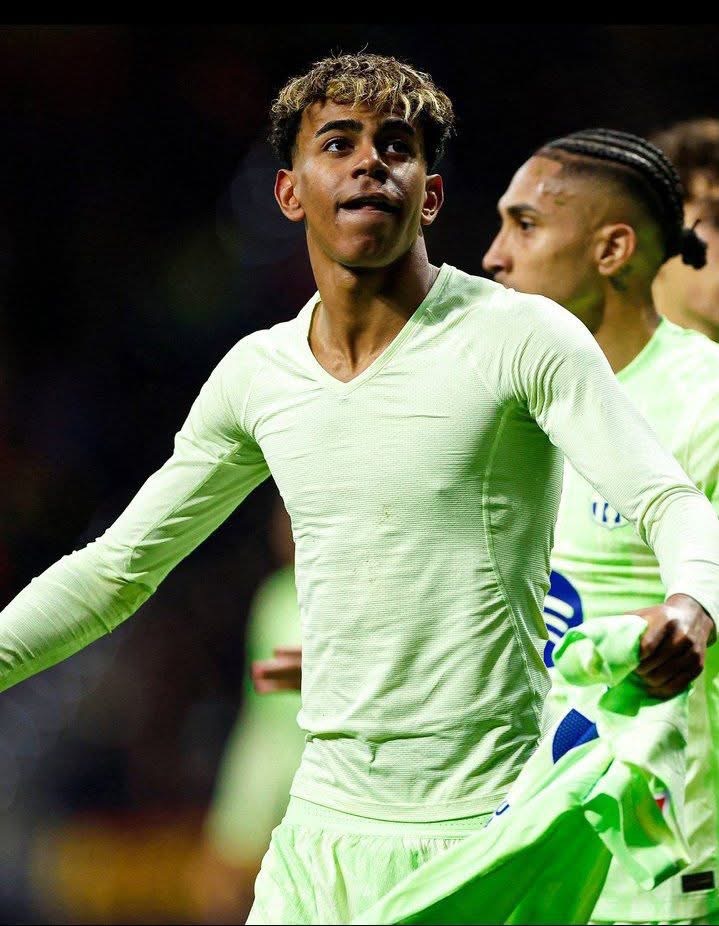The Manchester clubs striving and thriving in the shadows of City and United
https://static01.nyt.com/athletic/uploads/wp/2025/01/12150525/0113_ManchesterClubs.png?width=1200&height=630&fit=cover
Living on the doorstep of footballing monoliths can come in handy sometimes. With Greater Manchester in the grip of a cold snap last week, Salford City were left without anywhere to train. The pitches at their Littleton Road base were frozen solid.
Salford rent the pitches from Manchester United for a nominal fee. A call into Old Trafford asked whether there were any alternative options. The offer of an indoor pitch at The Cliff, United’s old headquarters, was happily accepted.
“The problem we’ve got is it’s only 50 yards wide and I think only 80 yards long,” said Salford’s manager Karl Robinson before Saturday’s trip to Manchester City. “The size of the opposition’s pitch at the weekend is gonna feel a lot bigger than that.”
Still, Salford were extremely grateful for United’s assistance, aided by the links to their Class of ’92 ownership. Trading off that connection has helped transform a club that was mid-table in the eighth tier of English football a little more than a decade ago into a professional, established EFL club.
Yet sharing a region with two of the world’s biggest clubs, and as many as 90 others up and down the English football pyramid, also brings significant challenges, as Salford know well.
After four promotions in five seasons, the club have remained rooted in League Two for the past six years, Last February, Salford launched a process to “explore new strategic partners” in a bid to attract much-needed investment. In September, the Class of ’92’s closest business associate Peter Lim stepped away from the project.
The average attendance at the Peninsula Stadium of 2,803 is the third-lowest in the EFL and only the eighth-highest in Greater Manchester, smaller than the crowds at reformed Bury in the ninth tier. Around 5,500 were part of the away end at the Etihad on Saturday.

Robinson up against Guardiola at the Etihad (Carl Recine/Getty Images)
Converting a sizable chunk of that number into regulars would arguably be a greater prize than a place in the fourth round, such is the challenge for smaller clubs in a region saturated by football.
“When you’re in the shadows of two of the biggest clubs in world football, within the confines of where we are, we’re always going to be in their shadows — the history, the success that they’ve had, the enormous worldwide support that they get,” Robinson admitted, but not without outlining the progress made recently.
Six wins and six clean sheets had lifted Salford to third in League Two at the start of the weekend, which would be enough to secure automatic promotion at the season’s end. Saturday’s trip to City was their first-ever appearance in the FA Cup third round. Their first-ever meeting with either of the two Manchester clubs, as well.
“I think what this game certainly has done is woken a few people up and gone: ‘Oh, they’re doing OK. They’ve had 10 years, they’ve had multiple promotions’,” Robinson added. “That’s why when they say we’ve stalled, we haven’t stalled. I hate that.”
For Greater Manchester’s other clubs, succeeding in the shadow Robinson speaks of is possible, and is often a matter of perspective.
Salford were not the only club in the region to need a spot of help last week. “Right now, we’re at City on their indoor pitches, otherwise we would not be able to do an 11-v-11 preparation session,” says Simon Wilson, Stockport County’s director of football, before Sunday’s FA Cup trip to Crystal Palace. “We’ve been scrambling all week.”
The trip to Selhurst Park would ultimately end in defeat, but only a narrow one, with manager Dave Challinor’s side having more shots on target than their Premier League opponents. They showed why they are one of the most upwardly mobile clubs in the country.

Wilson was City Football Group’s (CFG) strategy and performance manager in a former life but, after moving into consultancy work for clubs around Europe, he was introduced to local property magnate Mark Stott.
A City season ticket holder, Stott wanted to invest in a football club and commissioned Wilson with the task of assessing the market. Despite Stockport only just picking themselves up from their lowest ebb — finally earning promotion from the National League North in 2019 — Wilson recommended them.
It had that nice combination of being almost like a start-up, but with loads of history and loads of potential,” Wilson says. “There weren’t massive skeletons in the closet, no big costs that you couldn’t deal with.”
The years of underachievement, which had seen the end of the club’s professional status after more than a century of Football League membership, left a relatively blank slate. “Almost everything you did was seen as positive because it added to the club,” Wilson says. “If you’re higher, it’s harder to do that.”
Not long after Stott’s takeover was completed in early 2020, Stockport moved into a new training complex in Carrington — formerly City’s base before their move to the purpose-built City Football Academy.

Stott, third left in the directors’ box, and Wilson, second left (James Gill – Danehouse/Getty Images)
“We actually use the pitches that City won the Premier League on for the first few times,” says Wilson, which was a particular advantage during the National League days. “Whenever we brought a player to look around, by the time you’d finished the walk around the pitches, they were ready to sign.”
Improving the training facilities was a key element of an ambitious plan devised by Stott and Wilson before taking control. “It said, with a fair wind, in seven years we could be in the Championship.”
They are right on schedule, ahead of it even, after two promotions in three years, with Challinor’s side currently sitting just outside the play-off places in League One.
Stockport’s greater size and resources relative to rivals in League Two and the National League helped. Attendances were touching five figures in the fourth tier last season, but as Stockport have climbed the ladder, those advantages have evened out.
“For the first time in a few years, we knew we weren’t going to be in the top three spending clubs in the league. We’re not even top five,” says Wilson.
The success to date has allowed Stockpot to tweak that seven-year plan and shift budgets around, bringing in younger players with room to develop during the summer, complemented by loan signings like Louie Barry, the former Barcelona youth player enjoying an outstanding campaign until he was recalled by Aston Villa last week.

Barry was flying for Stockport before his recall (James Gill – Danehouse/Getty Images)
But in many ways, Wilson is still aiming for the same target that he was when walking into a fifth-tier club.
“It’s not like you wait until you get to the Championship to start looking and behaving like a Championship club,” he says. “You do that from day one and then you get the benefit: all the infrastructure, the extra coaching, the facilities while you’re in the lower leagues. That has probably made the difference.”
All that has been achieved despite the proximity to United and City, but Wilson only sees positives in that proximity, whether that’s through the relationships maintained with both clubs, the cross-pollination of staff, the City youngsters who visit Stockport’s training base for the experience of playing against senior opposition, or indeed being able to train on City’s pitches in preparation.
“It’s a hotbed. It’s what everyone wants to talk about, think about,” he says of Greater Manchester football. “We actually quite like the lane we’re in.”
The saturation of football history and heritage in Greater Manchester is typified by Ashton-under-Lyne: a town with a population of approximately 48,000 people that has produced three World Cup winners.
A statue immortalising Sir Geoff Hurst, Jimmy Armfield and Simone Perrotta (Italy) sits outside Tameside Stadium, the home of Curzon Ashton, who sit top of the National League North despite averaging crowds of only 512 — significantly up on last season, albeit still among the smallest in the league.
That figure would probably be a touch higher were it not for Ashton United, playing a level below Curzon in the Northern Premier League (NPL) Premier Division.

Tameside’s World Cup winners Hurst, Armfield and Perrotta (Richard Sellers/PA Images via Getty Images)
“It’s not only the two Ashton clubs,” Andy Clayton, Ashton United’s general manager, points out. “You look at Tameside — you’ve got Mossley (Northern Premier League Division One), you’ve got Hyde (NPL Premier Division), you’ve got Glossop (North West Counties, step nine), you’ve got FC (United — Northern Premier League) only six miles down the road, you’ve got Oldham (National League) only four miles up the road.”

Last Tuesday’s opponents Macclesfield are not Greater Manchester-based but are only 10 miles outside the region and command crowds of around 3,000 when playing at home. By contrast, Ashton United’s average gate of 356 is the league’s smallest.
“We’re all constantly fighting for the crowds and it’s very difficult,” says Clayton. “This is one of the most deprived areas in Greater Manchester. There’s not that sort of spendable income.”
Ashton United are even considering allowing everyone in for free one week in an attempt to boost crowds, but nothing brings people through the turnstiles quite like results, and at least they are decent: heading into the game with the league leaders, they are in fifth-place, inside the play-off positions
On a weekend, and in far more favourable conditions, plenty more away fans would have made the trip to Hurst Cross and boosted Ashton’s average attendance figure for the season. Instead, the snow causes Macclesfield to cancel two coachloads.
That’s not the only problem. “Unfortunately, there are no programmes on sale this evening due to a logistical issue,” said the Hurst Cross announcer. The chap who delivers them was snowed in.
Many of the club’s other volunteers spend the afternoon shovelling snow and forking the turf with manager Steve Cunningham as they try to get the game on. “Everyone mucks in,” says Clayton. “One day I’m speaking to sponsors about £10,000 sponsorship deals, the next I’m sorting out blocked toilets.”
All that effort pays off. Two mid-afternoon pitch inspections satisfy the referee and an awkward rescheduling in an already-packed calendar is avoided.
Once the game is under way, Macclesfield have several attempts cleared off the line and hit the underside of the bar but are never quite dominant, with Ashton posing a constant threat on the counter-attack.
That is much to the frustration of Macclesfield owner-cum-manager Robbie Savage, who sits on a drinks cooler like the Marcelo Bielsa of the seventh tier, draped in a long white jacket that singles him out for even more mockery from the stands than usual.
When Ashton win a free-kick in the fourth minute of stoppage time, Savage knows it’s not going to be Macclesfield’s night. “This’ll be a goal this, I’m telling you,” he says to a gaggle of away fans congregated behind the dugout. He’s right. Sam Baird rises highest to head in Ashton’s winner.
Cunningham and his players celebrate the victory by lining up for high fives and backslaps from the most vocal element of Ashton’s support. That is nothing out of the ordinary at Hurst Cross.
“Win or lose, all our players will come over to the fans, they’ll shake hands with them and they’ll mingle with them in the bar afterwards,” says Clayton. “You can’t imagine Bruno Fernandes mingling in the bar with supporters afterwards!”
Because despite the battle for eyeballs, Clayton believes that once fans step through the turnstiles, they usually come back. “They say: ‘I used to be a season ticket holder at City, I used to be a season ticket holder at United but this is more fun’. People come and think: ‘I’ll have some more of that.’”
To the tune of Lord of the Dance, the faint chant of “West, West, wherever you may be, we eat hummus and celery, we don’t eat meat, we love broccoli, we’re Chorlton and West Didsbury” could be heard from the freezing touchline on Wednesday evening.
A handful of West Didsbury & Chorlton, known as “West”, fans braved sub-zero temperatures to watch the Manchester Premier Cup quarter-final against Chadderton. The club are known for their other quirky chants including “Hummus, hummus, hummus, hummus… Quinoa, quinoa!” to the tune of 2 Unlimited’s No Limit as well as “Man! I feel like a West fan” in honour of Shania Twain.
The chants are a self-deprecating response to those who have made fun of the ninth-tier side’s middle-class roots from a leafy part of south Manchester. West have seen a huge increase in attendance over the past decade, averaging just 54 fans in the 2012-13 season. Last year their highest attendance was 1,320, with an average of 723, the league’s third strongest turnout after Bury and FC Isle of Man.
“It’s a completely different vibe,” Matthew Durrant, chairman of West’s supporter’s group, Union 1908, says at half-time as his team trail 2-0. “It’s full of families, mums and dads with prams, lots of women, openly LGBTQ+ people. You’re not getting that vibe at many other clubs in Manchester.” Wednesday’s hosts Chadderton see West as a leading example of how to engage the community.
The supporters’ clear progressive values, spearheaded by Union 1908, formed in 2010, can be seen from the “Refugees welcome here” banner and pride flags adorning West’s home ground in Chorlton-cum-Hardy.

The West crowd (on a different, warmer, day) (photo courtesy of Nathan Ashmall)
Fan Rachel Sanig encountered “that toxic football environment” and “aggressivity” at other clubs in the league which made her feel uncomfortable, while Durrant, a Leeds fan, recalls watching the Elland Road side against Manchester United with his mum “next to a load of lads who were off their tongue on coke”, who were chanting about alleged sex crimes committed by players. “I thought: ‘I’m here with my mum’. The number of good experiences you have at elite level football is so few and far between.”
But at West, the duo have found a more welcoming environment. “There’s not just a sign on the front door saying no homophobia, no racism,” Sanig said. “People will call it out if they see it. There is a proper ethos of not letting something inappropriate stand.”
The women’s team is also garnering increased support and some fans, including Sanig, sponsor the players. “You feel your input as a supporter goes beyond just what happens at a weekend game,” said Sargent.
West do not feel the success of Manchester United and City affect their attendances. As well as the cost, Durrant feels “it’s more a disaffection with elite football overall rather than either club’s success”.
Likewise, Chadderton chairman Bob Sopel, a childhood United fan, let his executive tickets go because he found developing Chadderton “a bigger buzz”. “It’s the community, friendship, being part of something together,” he says. “When you look at the wages of players, cost of entry, transport, it’s not value for money anymore.”
After Salford-born James McAtee slotted in City’s seventh of the evening, many supporters in the South Stand looked upwards to the away end in the top tier and bid farewell to the streams of Salford fans making their way out.
Nicky Butt and Paul Scholes wore glum faces in the Etihad’s executive box. Gary Neville was away and not in attendance, which was probably for the best, given that of all the members of the Class of ’92, he was the main subject of the Etihad’s mockery.
There was still the eighth — and a McAtee hat-trick — to come. Such was the gulf in quality, and with City in a merciless mood, keeping their lead down to single digits became the main objective.
Later, Robinson could not help but resort to gallows humour. “Seven games ago, if you’d said we were going to concede eight goals in seven games, I would have taken it,” he said. “I just didn’t expect them all to be in one match.”
It was not a day to forget, though. Rather one to chalk down to experience — an experience that the Salford manager believes the club will be better for.
“It’s not like we’ve been here before. We’ve not been at this round before, I don’t think we’ve been to a Premier League team away. We’ve ticked a number of boxes,” Robinson said.
“When I first came here 12 months ago, to think that we’re sitting here in front of you, where we are in the league having just played Man City regardless of the result, I think it’s a tremendous achievement by everybody involved.”

Robinson said Salford would learn from their 8-0 defeat by City (Martin Rickett/PA Images via Getty Images)
There was pride that Salford had stuck to the principles, showing the same aggression that Robinson demands every week in League Two, even if it contributed to giving away two penalties.
There was the courage to play in open spaces and attempt to hit the Premier League champions on the counter-attack, which nearly led to Robinson’s side pulling one back at 2-0, only for City to capitalise on that looseness and go three up.
And though a chunk of 5,500 Salford fans had made their way out by full time, many stayed to applaud the efforts of Robinson and his players.
Growing pains are to be expected when you are standing on the shoulders of giants. And if more of those in the away end at the Etihad are back at the Peninsula for Fleetwood Town’s visit on Saturday, then this run to the third round will not have been without purpose.
(Photos: Getty Images, Mark Critchley, Nathan Ashmall; graphic: Dan Goldfarb)
[/gpt3]




Post Comment